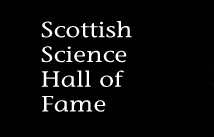James Clerk Maxwell (1831-1879)
James Clerk-Maxwell : [obituary]
of Edinburgh, Session 1879–80.
337
Of his other scientific work, which extended over the whole range
of physics, I may specially mention the following papers :—
On the transformation of surfaces by bending, “ Camb. Phil.
Trans.,” 1854.
The discovery of the production of double refraction in viscous
liquids (“Proc. R.S.,” 1873), a late consequence of some
of the results of his early paper of 1850.
A general theory of optical instruments, “Quart. Journ. of
Math.,” 1858.
On reciprocal figures, frames, and diagrams of forces, “Trans.
R.S.E.,” 1872. For this paper he obtained the Keith Prize.
His share in the construction of the British Association units
of electric resistance, and in the admirable reports of
the committee. Also his experimental verification of
Ohm’s law.
For further particulars recourse must be had to the Royal Society’s
Catalogue of Scientific Papers.
To these may now be added his numerous contributions to the
latest edition of the “ Encyclopædia Britannica” —Atom, Attraction,
Capillarity, &c.; and the laborious task of preparing for the press,
with copious and very valuable original notes, the “ Electrical
Researches of the Hon. Henry Cavendish.” This work has appeared
only within a month or two, and contains many singular and most
unexpected revelations as to the early progress of the science of
electricity.
The works which we have mentioned would of themselves indicate
extraordinary activity on the part of their author, but they form only
a fragment of what he has published; and when we add to this the
further statement, that Maxwell was always ready to assist those who
sought advice or instruction from him, and that he has read over
the proof-sheets of many works by his more intimate friends (en-
riching them by notes, always valuable and often of the quaintest
character), we may well wonder how he found time to do so much.
Maxwell’s early skill in versification developed itself in later years
into real poetic talent. But it always had an object, and often veiled
the keenest satire under an air of charming innocence and naive
admiration. No living man has shown a greater power of conden-

![James Clerk-Maxwell : [obituary] - Page 337](https://deriv.nls.uk/dcn4/7449/74491731.4.jpg)
